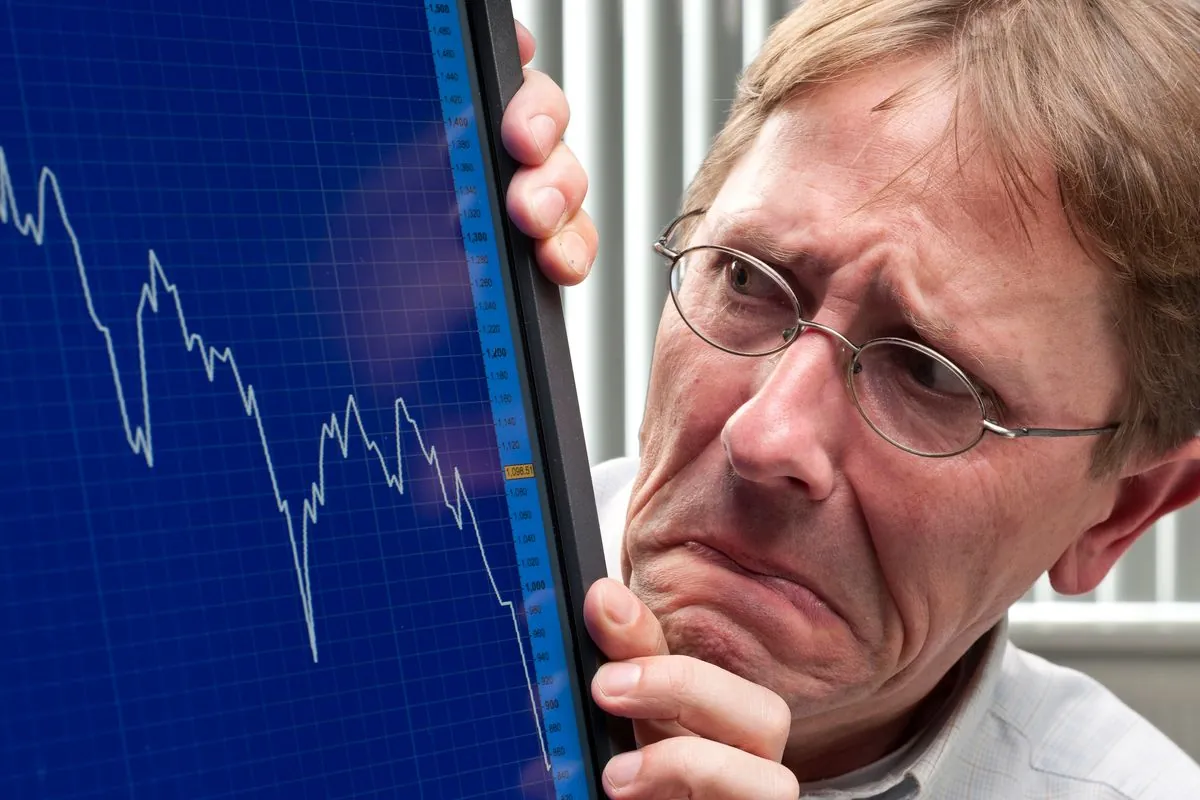Global Markets Plunge Amid U.S. Economic Slowdown Fears
Global markets experienced significant declines due to fears of a U.S. economic slowdown. Investors sought safe havens as stock markets in Asia, Europe, and the U.S. saw major drops.

Global financial markets experienced a significant downturn, with investors seeking refuge in safe-haven assets amid growing concerns about a potential U.S. economic slowdown. The market turmoil affected stock exchanges across Asia, Europe, and the United States, resulting in substantial losses.
In Japan, the Nikkei index, the country's leading stock market indicator, suffered a dramatic 12% decline. Circuit breakers, designed to halt trading during extreme market volatility, were activated multiple times. South Korea's market also experienced a severe 9% drop, reminiscent of the losses seen during the Great Recession of 2007-2009.
European markets followed suit, with declines ranging from 2% to 3%. Early trading on the Dow Jones and Nasdaq, major U.S. stock market indices, indicated a challenging day ahead for American investors.

The market panic was triggered by several factors, including disappointing U.S. employment data released the previous week. This report hinted at a potential economic slowdown after years of robust growth. The Federal Reserve, the central bank of the United States, faced pressure to reduce interest rates swiftly to mitigate the economic impact.
"Markets are like a toddler, and you're always one tantrum away. Things are always black or white; they are never gray."
Adding to the market uncertainty, Japan unexpectedly raised its interest rates from near-zero to 0.25%. This move, aimed at addressing inflation after years of deflation, had far-reaching consequences for global investors accustomed to Japan's low-interest environment and weak yen.
The market downturn led investors to seek safe-haven assets, particularly U.S. and German government bonds. Yields on U.S. Treasuries, considered a benchmark for safe investments, dropped significantly since late July.
Gary Hufbauer, an economist specializing in international trade, noted the potential political implications of the market correction. With the U.S. presidential election just three months away, the economic turbulence could influence voter sentiment and campaign dynamics.
Despite superficial similarities to the 2008 financial crisis, experts emphasize key differences in the current situation. The Great Recession of 2007-2009 was exacerbated by the subprime mortgage crisis, which had systemic effects on banks and insurance companies. The present market turmoil, while significant, does not pose the same level of threat to the financial system.
Nevertheless, the market panic occurs amidst ongoing geopolitical uncertainties and conflicts worldwide, adding to the complex global economic landscape. As investors and policymakers navigate these challenges, the focus remains on stabilizing markets and maintaining economic growth.


































